Using The BOD POD To Gain A Competitive Advantage
Using The BOD POD To Gain A Competitive Advantage
This article discusses the BOD POD and how swimmers and other athletes can use it to enhance performance in the pool.
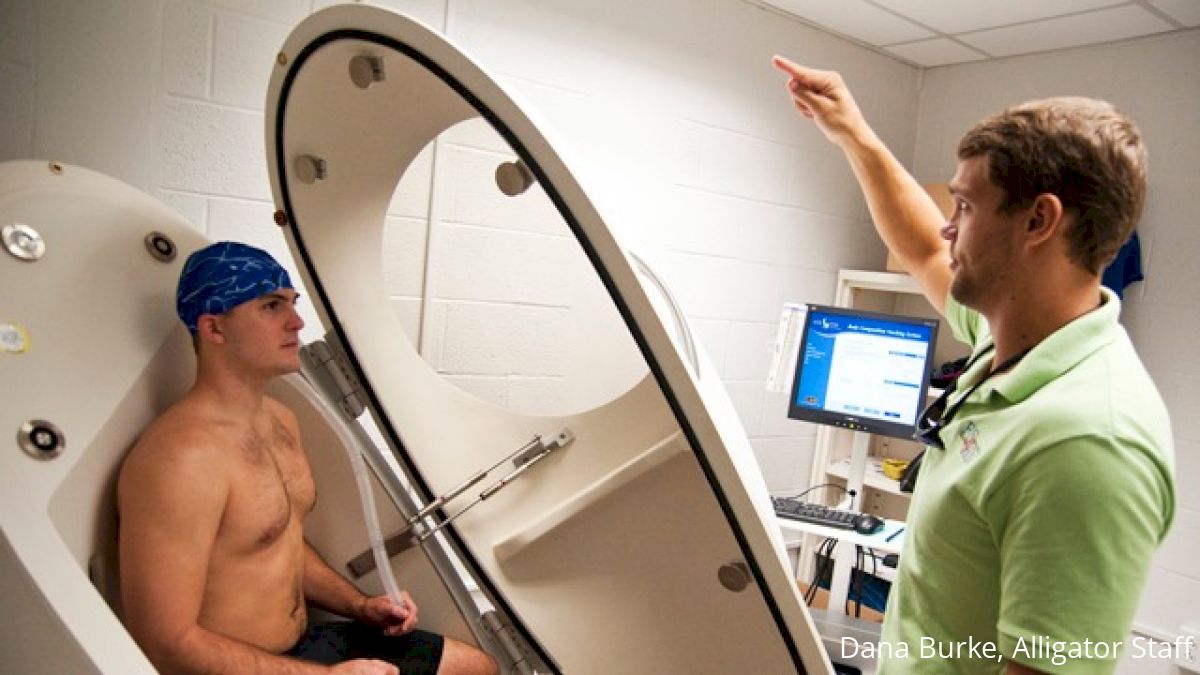
Across the NCAA, athletic departments are placing a growing importance on bringing in the newest technologies. Not only does having access to the most recent technology in athletics increase performance skills, but it also is a huge selling point in recruiting.
The BOD POD, a giant egg-looking capsule that uses body density to measure and calculate body composition, is one of these tools. While a scale gives an athlete a simple measurement of body weight, the BOD POD provides a detailed summary of body make-up -- more precisely, body fat versus lean body mass. It's usually expressed as body fat percentage and pounds of fat-free mass (FFM).
"A BOD POD assesses body composition based on air displacement plethysmography technology. It gives total body mass, fat-free weight, and fat weight," says Rachel Pfister, a nutritionist for the University of Alabama athletic department.
Pfister recommends athletes have a BOD POD completed every 6-8 weeks to make sure their goal body composition stays on target with what they need to perform to the best of their ability.
Every individual athlete and sport is different, and therefore target body compositions vary.
"In some cases, I feel it is necessary for regular BOD PODs," Pfister says. "Athletes who have trouble maintaining a certain weight, have had weight issues in the past, or have had a sudden decline in performance are some examples of why it is so beneficial for collegiate athletes."
Athletes are always looking for ways to develop a competitive edge, and they now have more tools to do so than ever before. BOD POD technology allows athletes to focus on changing body composition instead of simply losing/gaining weight alone. When the focus is solely restricted to scale weight by itself, inadequate nutrition becomes a greater risk and can also lead to increased illness or injury risk, slow recovery, and poor performance -- which is the last thing any competitor wants.
These benefits allow for a more focused assessment of personal fitness and can translate into more drops in the pool.
---
The BOD POD, a giant egg-looking capsule that uses body density to measure and calculate body composition, is one of these tools. While a scale gives an athlete a simple measurement of body weight, the BOD POD provides a detailed summary of body make-up -- more precisely, body fat versus lean body mass. It's usually expressed as body fat percentage and pounds of fat-free mass (FFM).
"A BOD POD assesses body composition based on air displacement plethysmography technology. It gives total body mass, fat-free weight, and fat weight," says Rachel Pfister, a nutritionist for the University of Alabama athletic department.
Pfister recommends athletes have a BOD POD completed every 6-8 weeks to make sure their goal body composition stays on target with what they need to perform to the best of their ability.
Every individual athlete and sport is different, and therefore target body compositions vary.
"In some cases, I feel it is necessary for regular BOD PODs," Pfister says. "Athletes who have trouble maintaining a certain weight, have had weight issues in the past, or have had a sudden decline in performance are some examples of why it is so beneficial for collegiate athletes."
Athletes are always looking for ways to develop a competitive edge, and they now have more tools to do so than ever before. BOD POD technology allows athletes to focus on changing body composition instead of simply losing/gaining weight alone. When the focus is solely restricted to scale weight by itself, inadequate nutrition becomes a greater risk and can also lead to increased illness or injury risk, slow recovery, and poor performance -- which is the last thing any competitor wants.
These benefits allow for a more focused assessment of personal fitness and can translate into more drops in the pool.
---
The best swimming coverage. Straight to your inbox.
Don't miss breaking news, feature stories, event updates, and more. Sign up for the FloSwimming mailing list today.Related Content
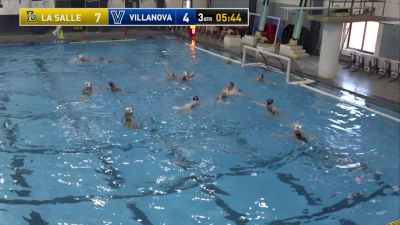 Replay: Le Salle vs Villanova - WWP - 2024 La Salle vs Villanova | Apr 7 @ 3 PM
Replay: Le Salle vs Villanova - WWP - 2024 La Salle vs Villanova | Apr 7 @ 3 PMApr 7, 2024
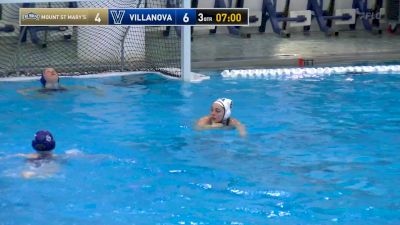 Replay: Mount St. Mary's vs Villanova - WWP - 2024 Mount St. Mary's vs Villanova | Apr 6 @ 7 PM
Replay: Mount St. Mary's vs Villanova - WWP - 2024 Mount St. Mary's vs Villanova | Apr 6 @ 7 PMApr 7, 2024
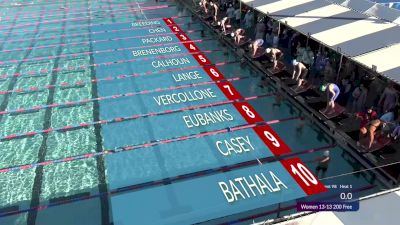 Replay: Finals - 2024 ISCA East Coast Elite Showcase | Apr 6 @ 4 PM
Replay: Finals - 2024 ISCA East Coast Elite Showcase | Apr 6 @ 4 PMApr 7, 2024
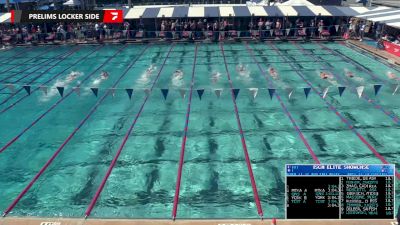 Replay: Prelims Locker Side - 2024 ISCA East Coast Elite Showcase | Apr 6 @ 8 AM
Replay: Prelims Locker Side - 2024 ISCA East Coast Elite Showcase | Apr 6 @ 8 AMApr 6, 2024
 Replay: VMI vs Villanova - WWP - 2024 VMI vs Villanova | Apr 6 @ 11 AM
Replay: VMI vs Villanova - WWP - 2024 VMI vs Villanova | Apr 6 @ 11 AMApr 6, 2024
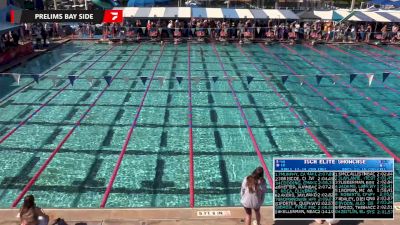 Replay: Prelims Bay Side - 2024 ISCA East Coast Elite Showcase | Apr 6 @ 9 AM
Replay: Prelims Bay Side - 2024 ISCA East Coast Elite Showcase | Apr 6 @ 9 AMApr 6, 2024
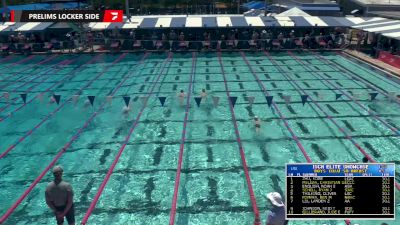 Replay: Prelims Locker Side - 2024 ISCA East Coast Elite Showcase | Apr 5 @ 8 AM
Replay: Prelims Locker Side - 2024 ISCA East Coast Elite Showcase | Apr 5 @ 8 AMApr 6, 2024
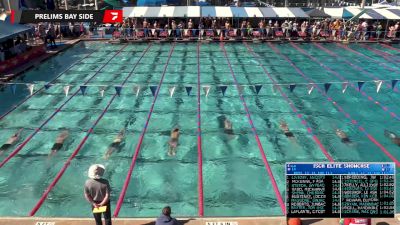 Replay: Prelims Bay Side - 2024 ISCA East Coast Elite Showcase | Apr 5 @ 8 AM
Replay: Prelims Bay Side - 2024 ISCA East Coast Elite Showcase | Apr 5 @ 8 AMApr 5, 2024
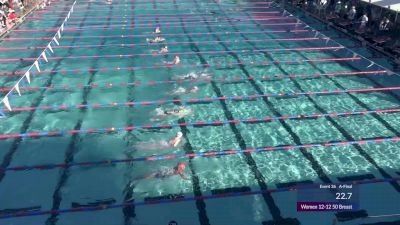 Replay: Finals - 2024 ISCA East Coast Elite Showcase | Apr 4 @ 4 PM
Replay: Finals - 2024 ISCA East Coast Elite Showcase | Apr 4 @ 4 PMApr 5, 2024